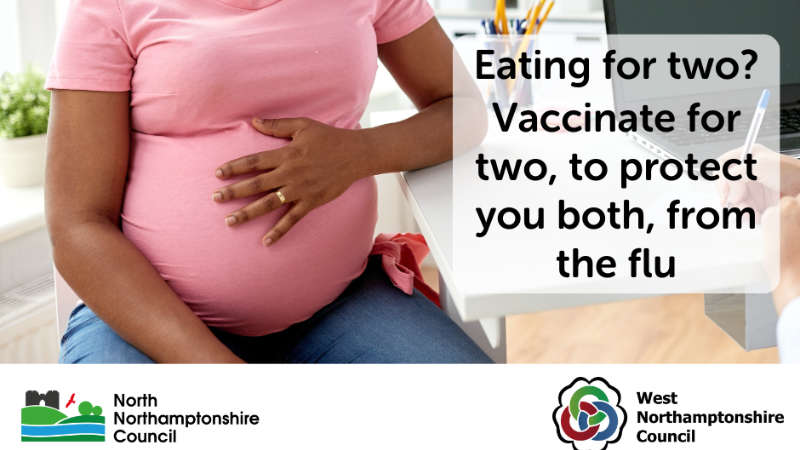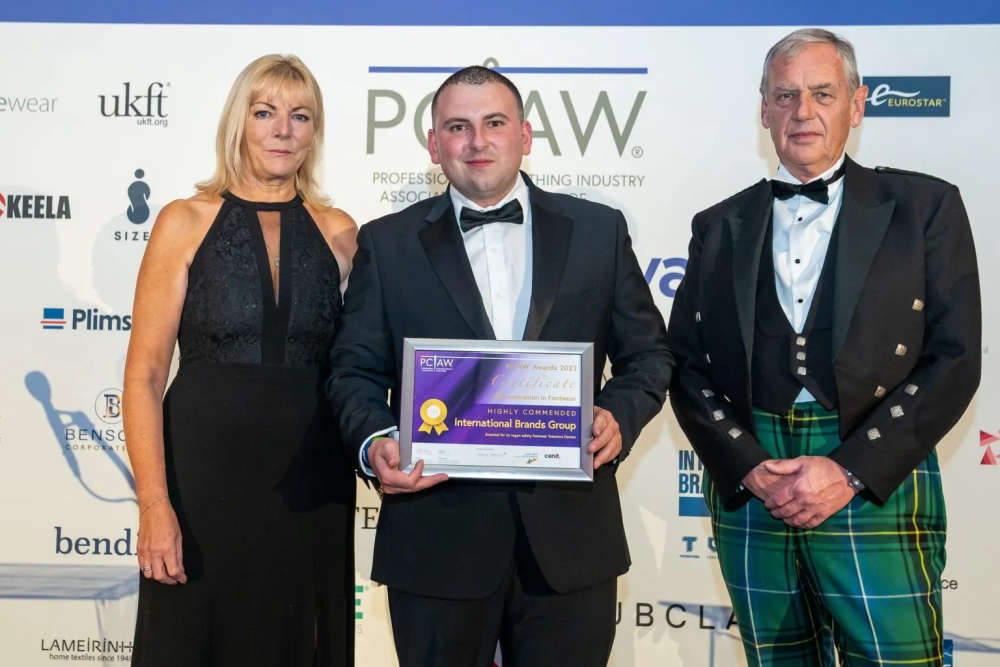
Pregnant women in Northamptonshire are advised to take up the offer of free vaccinations ahead of a predicted ‘twindemic’ of seasonal flu and COVID-19.
Pregnant women, and their babies, are particularly at risk of complications caused by both viruses.
The immune system naturally weakens during pregnancy which puts pregnant women at a higher risk of more severe flu symptoms, and further complications such as pneumonia. Pregnant women are also more likely to be admitted to hospital due to flu than the general population.
In 2021-22 only 35% of those who were pregnant at the time received their flu vaccination.
With flu already starting to circulate in Northamptonshire, and people mixing more than they have been in recent years, it is vitally important that pregnant women get vaccinated as soon as possible.
“Flu can have serious complications for pregnant people. There is good evidence that pregnant people have a higher chance of developing complications if they get flu, particularly in the later stages of pregnancy. Women who have had a flu vaccine while pregnant also pass some protection on to their babies, which lasts for the first few months of their lives.”Ilene Machiva, Deputy Director of Midwifery at Northampton General Hospital
“I’d like to reassure pregnant women who are currently unvaccinated that the flu vaccine can be given safely at any stage of pregnancy, from the first few weeks up to the due date. So, if you are currently pregnant do prioritise getting yours.”Mara Tonks, Deputy Director of Midwifery from Kettering General Hospital
If you have not yet had your flu vaccine and are pregnant, please contact your midwife or GP as soon as possible to arrange yours.
Pregnant women should also consider getting the COVID-19 vaccine, which is recommended by the Royal College of Midwives, as they are at greater risk from becoming seriously ill with COVID-19.
The COVID-19 vaccine can be given at any point during pregnancy and recent research shows that being vaccinated in pregnancy can also give your baby protection for the first six months of their life, reducing the risk of them needing hospital treatment for severe COVID-19 related illness.
Visit NHS Covid vaccination for more information.


 Local news content from CItiblog - read more at
Local news content from CItiblog - read more at  True crime expert from Olney nominated for national awards
True crime expert from Olney nominated for national awards
 Why Modernising Contract Drafting and Review Processes Matters for Business Growth
Why Modernising Contract Drafting and Review Processes Matters for Business Growth
 Countdown is on to Northampton Dragonboat Festival 2024
Countdown is on to Northampton Dragonboat Festival 2024
 Help to identify Kingsthorpe Man known as 'Terrance'
Help to identify Kingsthorpe Man known as 'Terrance'
 Totectors celebrate awards success
Totectors celebrate awards success
 Charity Single is a big hit
Charity Single is a big hit
 Have Your Say On Measures To Promote Responsible Dog Ownership
Have Your Say On Measures To Promote Responsible Dog Ownership
 Northampton Market Relocation
Northampton Market Relocation


Comments
Add a comment